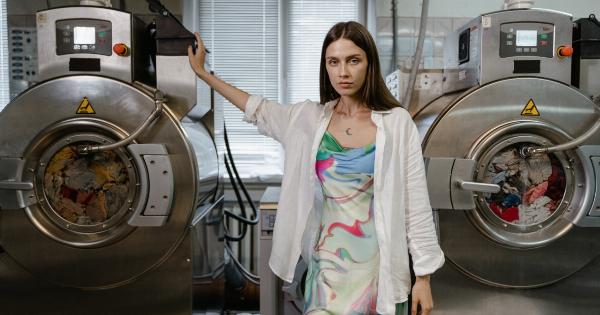Pregnancy is a complicated process that requires proper care, especially in terms of environmental exposures. Women encounter various chemicals in their daily lives, many of which can pose a threat to a developing fetus’s health.
Exposure to chemicals during pregnancy can increase the risk of complications such as miscarriage, preterm birth, low birth weight, birth defects, and neurodevelopmental disorders.
Chemicals That Increase the Risk of Pregnancy Complications
There are various chemicals that could potentially increase the risk of pregnancy complications. Here are some of them:.
1. Lead
Lead is a toxic heavy metal that can cause damage to the brain, kidneys, and other organs. Exposure to lead during pregnancy can result in preterm labor or miscarriage. It is known to cross the placenta and affect fetal development.
Lead exposure is linked to low birth weight and developmental delays in infants.
2. Mercury
Mercury is a toxic metal that is present in some types of fish. Exposure to high levels of mercury during pregnancy can harm the developing nervous system of the fetus. It can lead to intellectual disabilities, cerebral palsy, and deafness.
Pregnant women should avoid eating swordfish, tilefish, king mackerel, and shark, which are high in mercury.
3. Pesticides
Pesticides are commonly used to control pests, weeds, and insects in agriculture. Exposure to pesticides during pregnancy can increase the risk of miscarriage or preterm birth.
Some pesticides may also cause birth defects, preterm birth, and developmental delays in infants. Pregnant women should avoid using pesticides and limit their exposure to areas where pesticides are being used.
4. Phthalates
Phthalates are chemicals used in various products, such as plastics, cosmetics, and fragrances. Exposure to phthalates during pregnancy can disrupt hormone levels, which can lead to complications in the developing fetus.
Phthalates can also affect the development of the male reproductive system in male fetuses. Pregnant women should avoid using products that contain phthalates.
5. Bisphenol A (BPA)
Bisphenol A (BPA) is a chemical used in the manufacture of plastic products, such as food containers and water bottles. Exposure to BPA during pregnancy can increase the risk of miscarriage and developmental disorders in the fetus.
It can also cause problems with the female reproductive system and hormonal imbalances. Pregnant women should avoid using plastic products that contain BPA.
6. Brominated Flame Retardants (BFRs)
Brominated flame retardants (BFRs) are chemicals used in various products to reduce the risk of fire. BFRs are found in electronics, foam furniture, and some textiles. Exposure to BFRs during pregnancy can harm the developing nervous system of the fetus.
It can lead to developmental disorders, impaired learning and memory, and behavioral problems. Pregnant women should avoid using products that contain BFRs.
7. Polychlorinated Biphenyls (PCBs)
Polychlorinated biphenyls (PCBs) are chemicals used in the manufacture of electrical equipment, such as transformers and capacitors. PCBs are also present in some types of fish and seafood.
Exposure to PCBs during pregnancy can harm the developing nervous and immune systems of the fetus. It can also cause developmental disorders and lower IQ scores in infants. Pregnant women should avoid eating fish and seafood that may be contaminated with PCBs.
8. Dioxins
Dioxins are chemicals that are produced by burning waste, industrial processes, and natural events, such as forest fires. Dioxins are present in some types of fish and meat products.
Exposure to dioxins during pregnancy can harm the developing nervous system of the fetus. It can also cause developmental disorders and lower IQ scores in infants. Pregnant women should avoid eating food products that may be contaminated with dioxins.
9. Perfluorinated Chemicals (PFCs)
Perfluorinated chemicals (PFCs) are used in various products, such as non-stick cookware and waterproof clothing. Exposure to PFCs during pregnancy can harm the developing fetus’s growth and development.
It can also cause developmental disorders and lower IQ scores in infants. Pregnant women should avoid using products that contain PFCs.
10. Solvents
Solvents are chemicals used in various products, such as paints, cleaning agents, and adhesives. Exposure to solvents during pregnancy can result in preterm labor, miscarriage, and birth defects.
Some solvents may also cause developmental delays in infants. Pregnant women should avoid using products that contain solvents.
Conclusion
Exposure to chemicals during pregnancy can increase the risk of complications such as miscarriage, preterm birth, low birth weight, birth defects, and neurodevelopmental disorders.
Pregnant women should take proper precautions to avoid exposure to harmful chemicals. Consulting a healthcare provider can help identify the necessary steps to ensure a healthy pregnancy.































